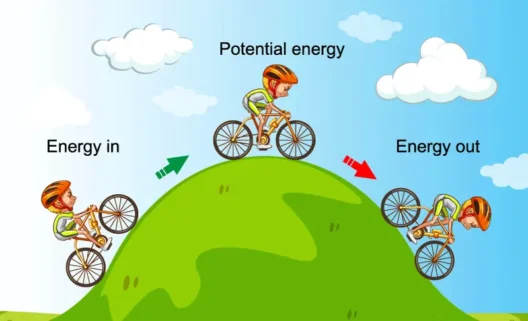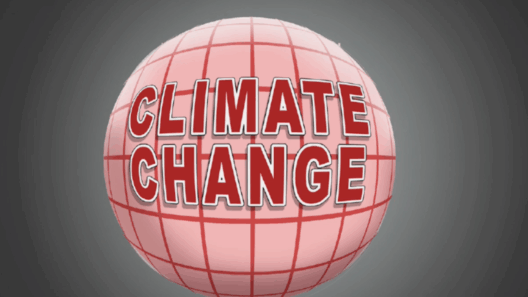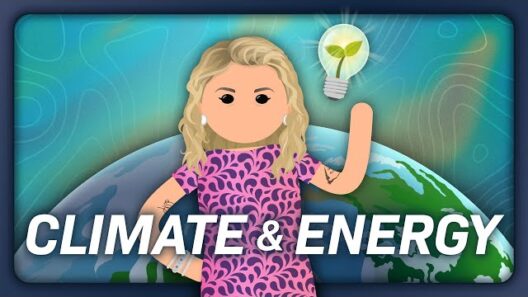Global climate change is an existential threat that impacts ecosystems, economies, and human health. With rising global temperatures, shifting weather patterns, and increasing sea levels, understanding the effects of climate change is crucial. This article explores the various consequences of climate change across different sectors, addressing a key concern for individuals and communities alike.
Amongst the primary effects of climate change is the escalation in the frequency and severity of extreme weather events. Natural disasters, such as hurricanes, floods, droughts, and heatwaves, have surged in intensity due to climatic shifts. These weather phenomena lead to widespread devastation, resulting in loss of life, displacement of populations, and significant economic repercussions. For instance, hurricanes in the Atlantic have become more powerful, causing extensive damage to infrastructure and livelihoods. This pattern underscores the urgent need for resilient city planning and community preparedness to mitigate the ramifications of such unpredictable weather-related catastrophes.
Climate change also has far-reaching implications for biodiversity and ecosystems. As habitats alter due to warming temperatures and changing precipitation patterns, many species are at risk of extinction. The phenomenon of habitat fragmentation forces wildlife to adapt quickly; some may thrive, while others may not survive. Coral reefs, often referred to as the rainforests of the sea, are particularly vulnerable. Rising ocean temperatures and acidification threaten these vital ecosystems, leading to coral bleaching—a phenomenon that disrupts marine biodiversity and affects the livelihoods of communities dependent on fishing and tourism.
The implications for agriculture cannot be overstated. Changing climatic conditions necessitate a reevaluation of agricultural practices worldwide. Crop yields are sensitive to temperature and rainfall variations. In some regions, higher temperatures may lead to reduced agricultural productivity, while in others, the changing climate may prompt longer growing seasons. However, this variability poses risks such as increased pest populations and altered soil health. Farmers face significant challenges as they strive to adapt to these changes while ensuring food security for a growing global population. Sustainable agricultural techniques, including crop rotation, agroforestry, and organic farming, can play a pivotal role in enhancing resilience against climate variances.
Water resources are equally impacted by climate change. The alteration in precipitation patterns translates to both droughts and floods, affecting freshwater availability. Regions that once enjoyed stable rainfall may face severe water shortages, while others may experience overwhelming surpluses leading to contaminated waters. These shifts exacerbate competition for water resources, potentially igniting conflicts among communities and regions. Addressing these water security issues with effective management, conservation efforts, and innovative technologies will be critical as climate change progresses.
Human health stands at the intersection of environmental changes and societal well-being. Climate change influences the spread of infectious diseases as changes in temperature and precipitation affect disease vectors such as mosquitoes and ticks. As warmer climates expand the range of these vectors, the potential for outbreaks of diseases such as malaria and dengue fever increases. Moreover, air quality deteriorates as pollutants increase and heat waves intensify. Vulnerable populations, particularly the elderly and those with pre-existing health conditions, are disproportionately affected, emphasizing the need for public health initiatives that prioritize climate resilience.
The economic implications of climate change extend beyond immediate disaster costs. Sectors like tourism, real estate, and insurance are becoming increasingly precarious due to the unpredictable nature of climate events and damage. Insurers are beginning to reevaluate policies, resulting in higher premiums for at-risk areas. Investment in green technologies and sustainable practices offers an opportunity to pivot towards a more resilient economy that prioritizes environmental integrity while potentially yielding economic benefits. By proactively addressing the threats posed by climate change, nations can foster innovations that create jobs while simultaneously addressing environmental concerns.
Climate change is inextricably linked to social equity and justice. Marginalized communities often bear the brunt of environmental degradation, with limited resources to adapt or recover. It is essential to consider social implications when formulating climate policies, ensuring that all voices are heard in the conversation. Equitable distribution of resources, access to clean technology, and supportive infrastructure are paramount for building resilience among vulnerable populations.
Global initiatives, such as the Paris Agreement, illustrate the collective responsibility to combat climate change. Countries are urged to set ambitious targets for reducing carbon emissions and transitioning towards renewable energy sources. This collaborative approach emphasizes that climate change is not merely an environmental issue but one that encompasses economic, social, and political dimensions. Engaging in thoughtful discourse and cooperative action at all levels of society will be key to addressing the multifaceted challenges posed by climate change.
In conclusion, the effects of global climate change are profound and pervasive, influencing the natural world and human societies in complex ways. As we face the inevitability of a changing climate, it is paramount to foster awareness and take concrete action. From enhancing agricultural practices to advocating for social equity and pursuing innovative solutions, the responsibility to combat climate change lies with us all. Through informed action, we can mitigate the impacts of climate change and pave the way for a sustainable future.







